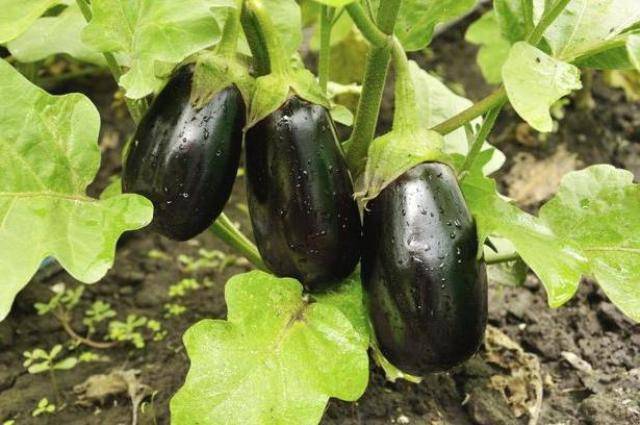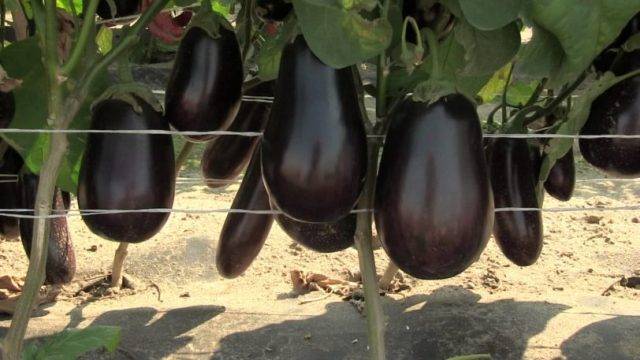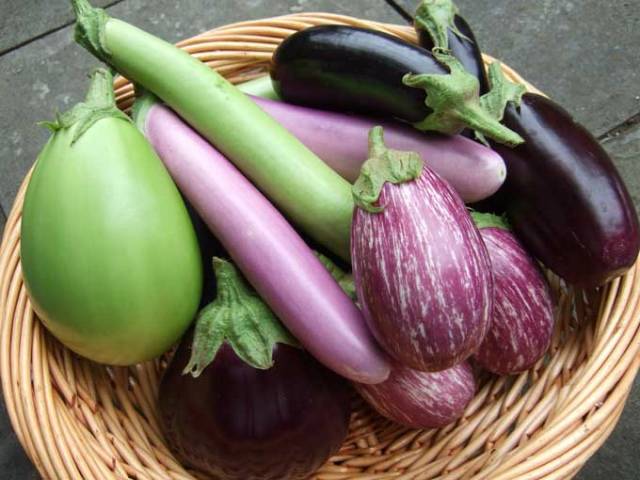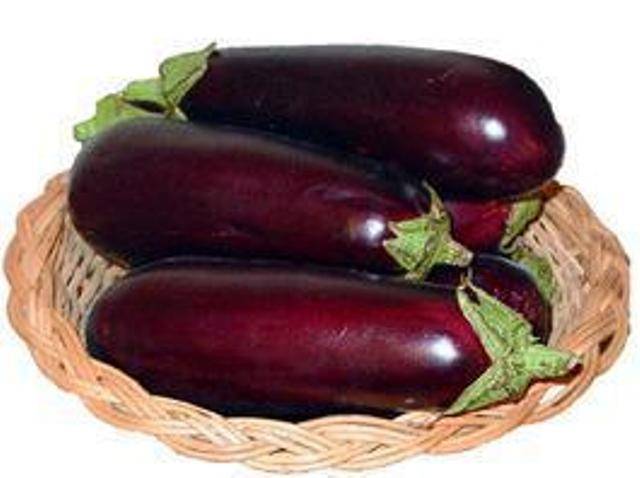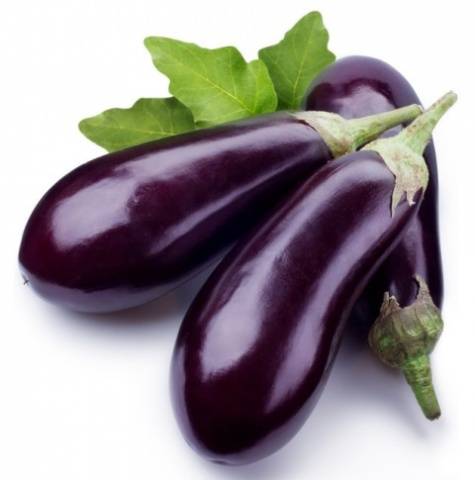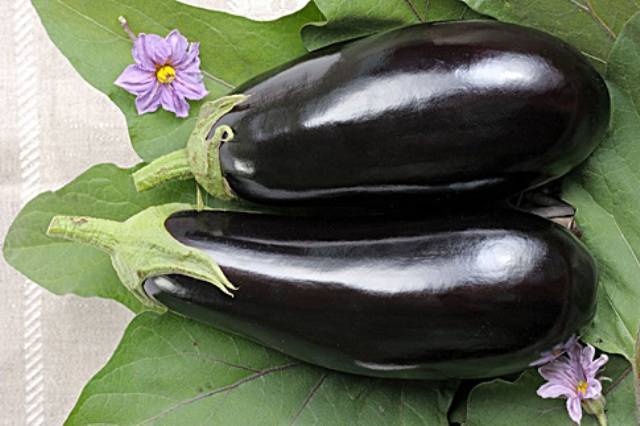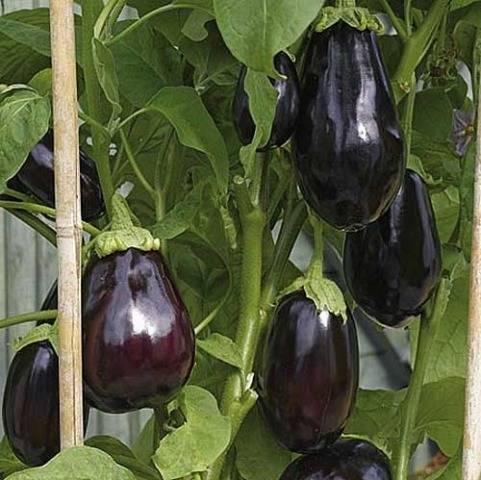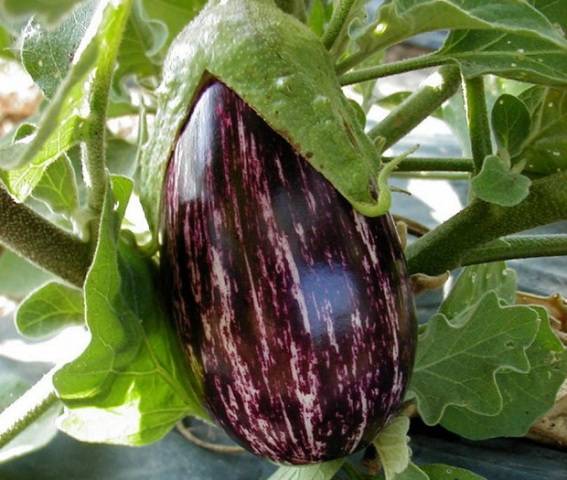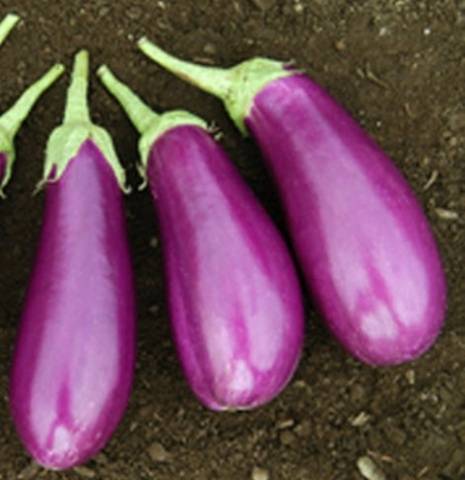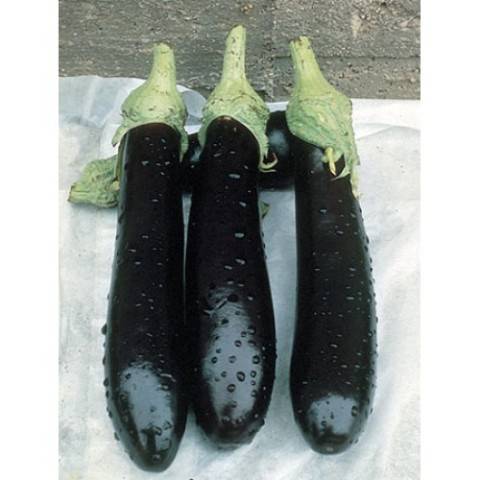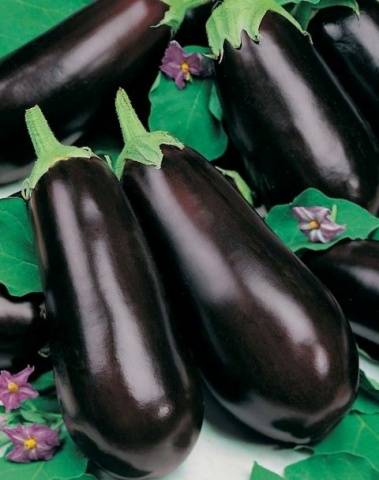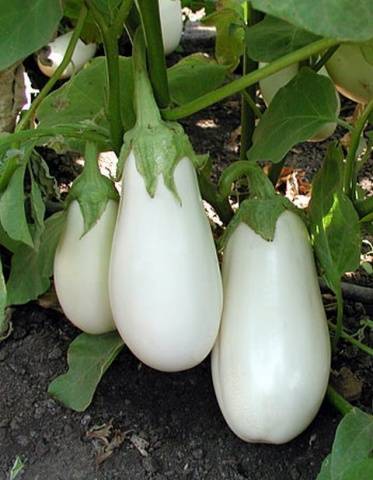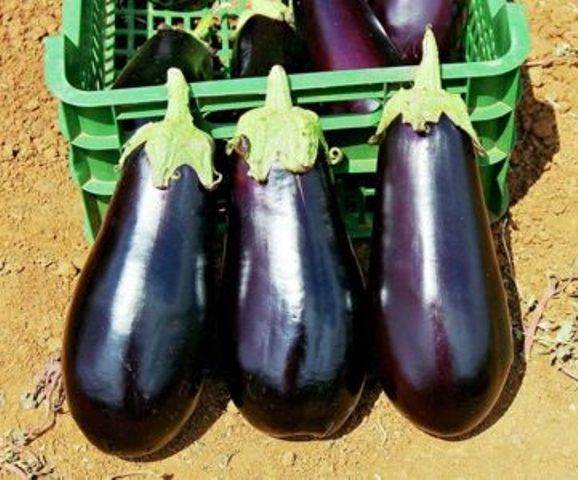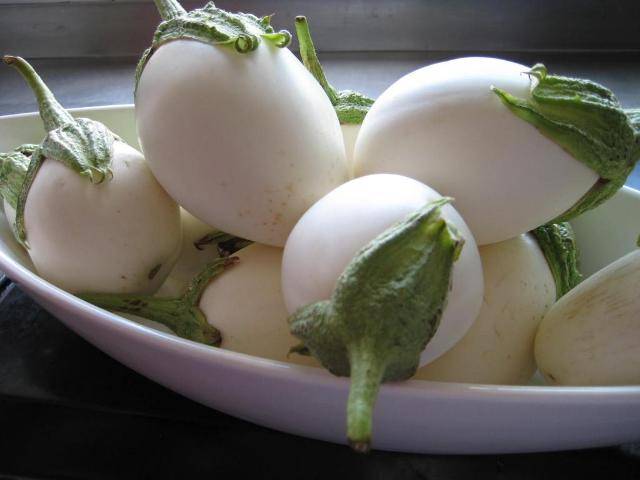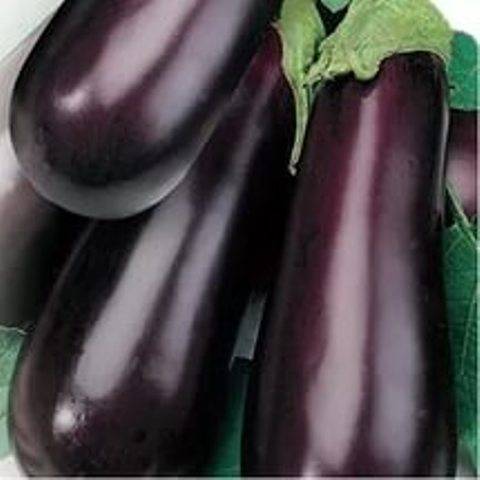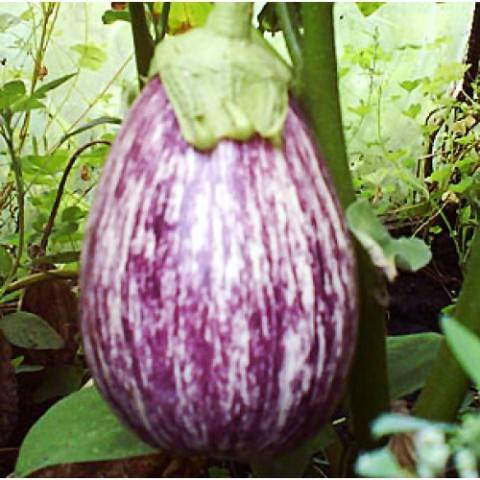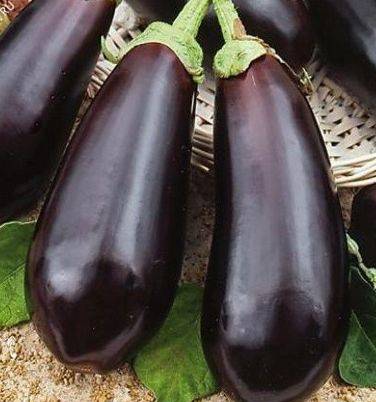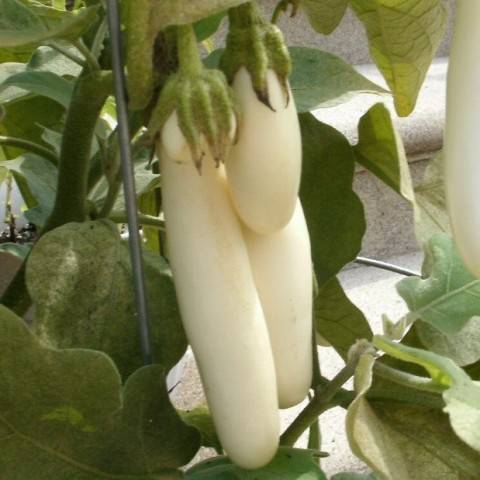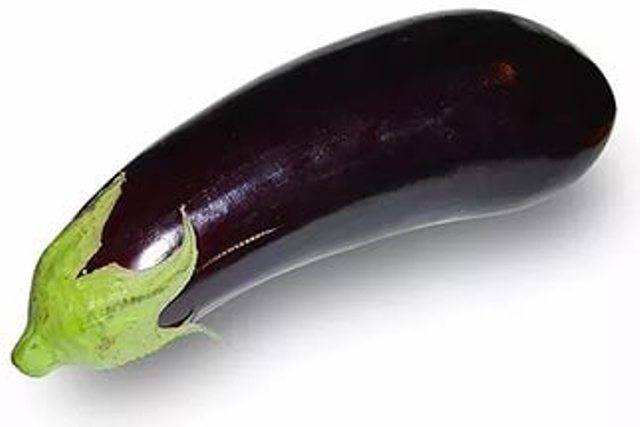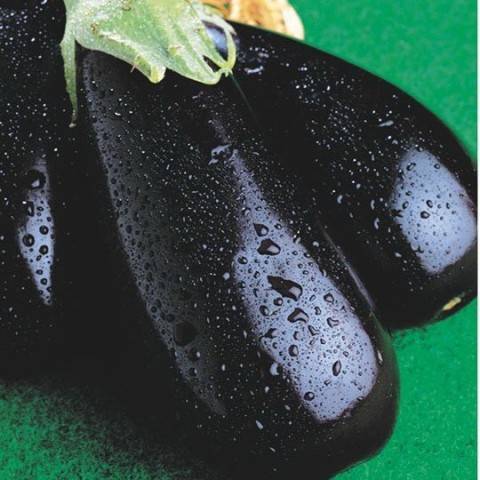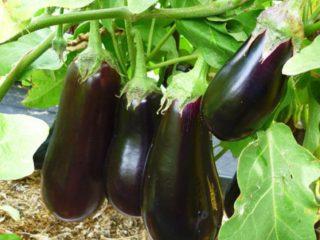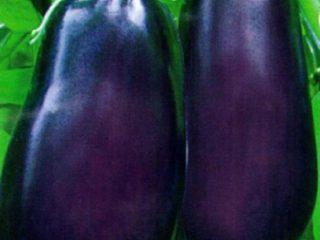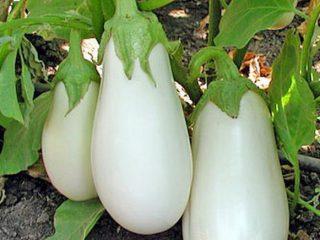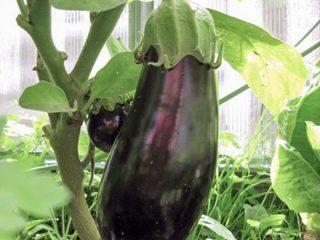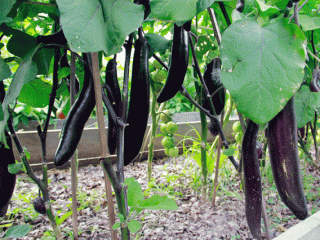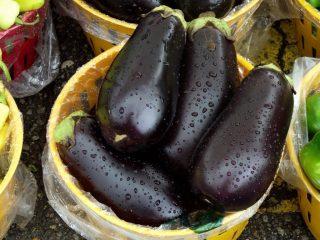Content
Today, growing such an exotic vegetable as eggplant will surprise no one. The range of agricultural markets expands with each new season, presenting new hybrids and varieties for greenhouses, greenhouses and open ground. Experienced gardeners approach the choice of seeds selectively, trying to obtain high yields, long growing seasons and high-quality tasty fruits. For this purpose, breeders are developing new vegetable hybrids - eggplants without bitterness.
Eggplant varieties without bitterness for different climatic regions
New varieties of eggplants developed are, as a rule, low-growing plants with an early ripening period. In addition, hybrids are highly resistant to sudden temperature changes and diseases characteristic of vegetable crops growing in greenhouses and open ground. The fruit pulp is snow-white, dense, while they are practically devoid of seeds and the bitterness characteristic of the vegetable.
The first thing you need to pay attention to when choosing a variety is the ability of the plant to grow and bear fruit in the conditions of your region. Today, farmers conditionally divide the territory of Russia into 3 climatic zones: southern, central Russia and northern. Let’s determine what characteristics eggplants without bitterness should have for a particular zone.
Southern climate zone
The high yield of eggplants in the southern districts allows gardeners not only to use the fruits for food, but also to preserve them. For cultivation, varieties without bitterness with large and long fruits of an even cylindrical shape are selected. The pulp of the fruit should not contain a large number of voids, seeds, and should not have bitterness. Since the most common eggplant dish for canning is sauté, gardeners choose hybrids with thick skins that do not grow more than 6-8 cm in diameter.
Central Russia
For middle latitudes, vegetable varieties with hardiness and resistance to possible spring cold snaps in the air and on the ground are selected. Taking into account the peculiarities of the climate, it is necessary to plant only those plants that have a long fruiting period and resistance to fungal and viral infections. For areas where summers are hot and dry, preference is given to plants adapted to low watering and direct sunlight.
Northern climate zone
To grow eggplants without bitterness in the North, it is better to choose mid- and late-ripening varieties. Seedlings are raised in greenhouses and transferred to open ground when the danger of sudden frost has completely disappeared. In the northern regions, eggplants without bitterness are most often planted in greenhouses, so for this climate zone they prefer to choose self-pollinating hybrids.
When buying planting material, pay attention to how hardened the seeds are, the timing of seed pecking and transfer of seedlings to open ground.
The best varieties and eggplant hybrids without bitterness are presented by manufacturers in a wide range of products. Choose a plant taking into account the climatic conditions of your region and the growing season that is convenient for you. Be sure to take into account the fact that during growth the crop needs regular feeding.
Early varieties and hybrids
Alekseevsky
A non-bitter variety for planting and growing in greenhouses and open areas. The ripening period begins at 90-95 days. The eggplant has a regular elongated shape, the skin is smooth, glossy, and dark purple in color. It has a “friendly” yield. In greenhouses and greenhouses, up to 10 kg of vegetables are collected from 1 m2. Average weight – 250-300 g. The plant tolerates fungal and viral diseases well, including tobacco mosaic.
Maxik F1
An early hybrid without bitterness with a ripening period of 95 days. It has an elongated cylindrical shape. The skin is shiny, smooth, dark purple in color, the flesh is greenish-white, without bitterness. Average weight – 200-250 g. During the period of full ripening, the fruits can reach sizes of 25-27 cm. The hybrid has a high yield. 10-12 kg of eggplants are harvested from 1 m2.
Behemoth F1
An unusual early hybrid with pear-shaped fruits. The growing season begins 95-100 days after germination. The skin is dark purple, the flesh is greenish-white, medium-dense, without bitterness.During the ripening period, the fruits reach 20-22 cm, weighing 300-330 g. “Behemoth” is ranked by gardeners as one of the most productive hybrids. In greenhouse conditions with 1m2 you can collect up to 16-18 kg of eggplants.
Nancy F1
One of the hybrids with an unusually fast ripening period. The bushes begin to bear fruit 2 months after the first seedlings peck. The fruits are small, pear-shaped. The skin is colored dark purple. During the period of full maturity, “Nancy” can grow up to 15 cm with a weight of 100-120 g. When grown in a greenhouse with 1 m2 get up to 5 kg of fruits without bitterness. In central Russia, “Nancy” is considered the best early variety for canning.
Quartet
An early ripening variety with an amazing striped color. Ripening begins at 100-110 days from germination. The fruits do not exceed 15 cm, the average weight of one eggplant is 100-120 g. Despite its small size, “Quartet” is a fairly productive variety. From 1m2 per planting area, you can harvest up to 12-15 kg of eggplants. The pulp of the fruit is without bitterness, white, loose, with a large number of seeds.
Purple Haze
An insect-pollinated variety of vegetables. Preference is given to growing eggplant in open areas. Adapted to low air and soil temperatures, therefore it has received well-deserved recognition among farmers of the northern climate zone. The ripening period is up to 105 days. Fully ripe fruits have a light, very beautiful color. The length of one eggplant can reach 20 cm, the average weight is 180 g. Up to 12 kg of eggplants without bitterness are harvested from one bush.
Valentina F1
An early ripening hybrid with surprisingly tasty fruits. It is completely free of bitterness, the flesh is dense and white, with a small amount of seeds. It takes about 90 days before the first fruits appear.The vegetable has the correct shape, the skin is dark purple, closer to black. The hybrid is classified as long-fruited, since a ripe eggplant can grow up to 30 cm, with an average weight of 270 grams. The "Valentina" hybrid is adapted for cultivation in any climate zone and is resistant to cold weather and common infections.
Purple Wonder F1
This bitter-free hybrid got its name because of its bizarre, slightly curved shape. The ripening period is 90-95 days. The fruits are small, average weight – 150-200 g. The fruit pulp is light green, with a pleasant delicate taste. In greenhouses from 1m2 up to 5-7 kg of eggplants are collected.
Mid-season varieties and hybrids
Swan
Designed for greenhouses, open ground and film greenhouses. The plant is resistant to cold weather in the air and soil. Distinctive features are snow-white, dense pulp without bitterness or seeds, and excellent taste. Ripe eggplants reach sizes up to 20 cm, weighing up to 250 g. Fruiting begins on the 105th day after the first shoots. Up to 5 kg of eggplants are harvested from one bush.
Surprise
For those who grow eggplants for canning, this is a real surprise. With a low yield (only 4-5 kg per bush), they are incredibly tasty. The pulp is white, practically devoid of seeds, the taste is delicate, without characteristic bitterness. Fruiting begins on day 105. Ripe fruits reach a length of 15-17 cm. Despite the fact that the weight of one fruit does not exceed 120 grams, “Surprise” does not contain bitterness and is surprisingly tasty when fried and baked.
Ping Pong F1
The name of the hybrid speaks for itself. The fruits are white, round in shape, 5-7 cm in diameter. It takes 110-115 days until mature fruits appear on the bush. The weight of one eggplant is 100-110 g.It is a medium-yielding hybrid without bitterness, but with good feeding it can produce up to 6 kg of fruit per bush.
Comet
The variety belongs to low-growing plants intended for cultivation in greenhouses and open ground. The height of the bush after growth stops is no higher than 80cm. The skin is dense, dark-colored. Eggplants reach a size of 20-22 cm, with an average weight of 200 g. The pulp is white and dense, without bitterness, with a small number of seeds. A distinctive feature of the variety is resistance to late blight and anthracnose. During the harvest period, up to 6-7 kg of fruits can be removed from the bush without bitterness.
Sailor
Mid-season variety, ripening in 105 days. Eggplants are oval, medium-sized. It got its name from the color of its light lilac skin with longitudinal white stripes. The ripe fruit rarely grows to 12 cm, and its weight does not exceed 150 grams. “Matrosik” is a very tasty, non-bitter variety, but has a medium yield. You can remove up to 5-6 kg of fruit from a bush.
Diamond
The variety is recommended for planting and growing in open ground. It is very popular among gardeners in central Russia and the southern regions. The skin is dense, dark purple in color, during the growing season it reaches a length of 18-20 cm, with an average weight of 120-150 g. Ripening occurs 100-110 days after full germination. From 1m2 remove up to 8-10 kg of eggplants.
Pelican F1
A variety for lovers of growing exotic vegetables. Eggplants are painted white, the skin is smooth and shiny. The pulp is white, loose, without characteristic bitterness. During the ripening period, eggplants reach a length of 15-17 cm and a weight of 100-120 g. From one square meter you can remove up to 10 kg of delicious eggplants.
Late ripening varieties and hybrids
Bull forehead
An amazingly tasty variety of eggplant without bitterness, with a ripening period of 140-145 days. The plant is classified as stunted. The bush during the period of growth arrest does not exceed 65-70 cm. When ripe, the fruits reach a length of 18-20 cm and a weight of 150-200 grams.
Brunette
Another low-growing type of eggplant without bitterness, with a bush height of up to 70 cm. It tolerates cold weather well, so it can be grown in open areas. The fruits are dark purple. The average weight during ripening is 120-200 g, and the length is 18-20 cm.
Black handsome
The period for full ripening of eggplants is 150 days. Large fruits are dark purple in color. On average, each of them grows to 20-22 cm, and the weight can reach up to 800 grams. The pulp is dense, white, and does not contain seeds. “Black Beauty” has received recognition due to its excellent taste. The plant is intended for planting in open ground and greenhouses.
Conclusion
Growing eggplants without bitterness is no different from ordinary ones. The only thing farmers recommend paying attention to when choosing a variety is its adaptation to climatic conditions. When purchasing hybrids, be sure to check the care conditions and whether the seeds are prepared for growing seedlings.
Check out some tips on how to grow a delicious eggplant crop outdoors
